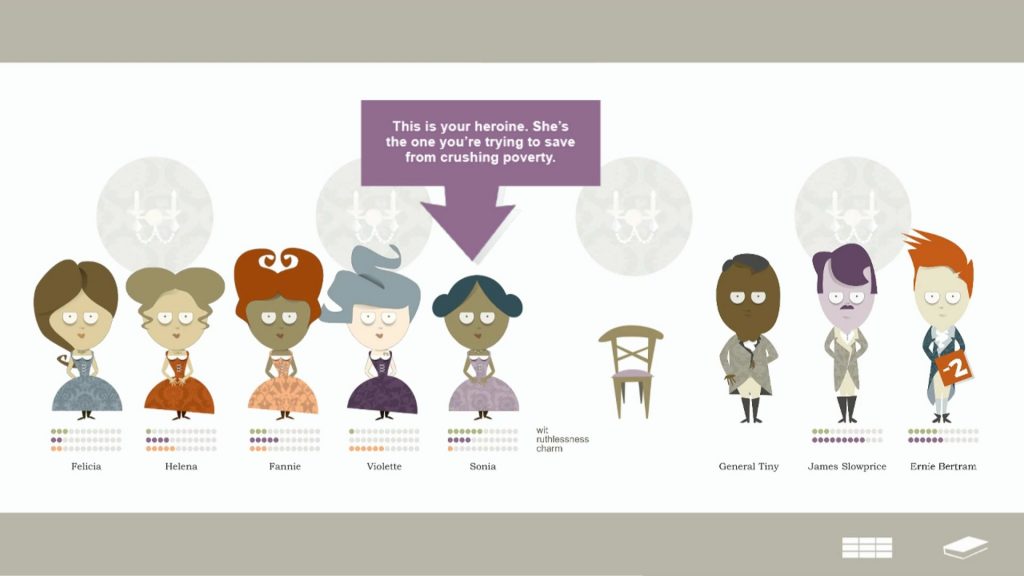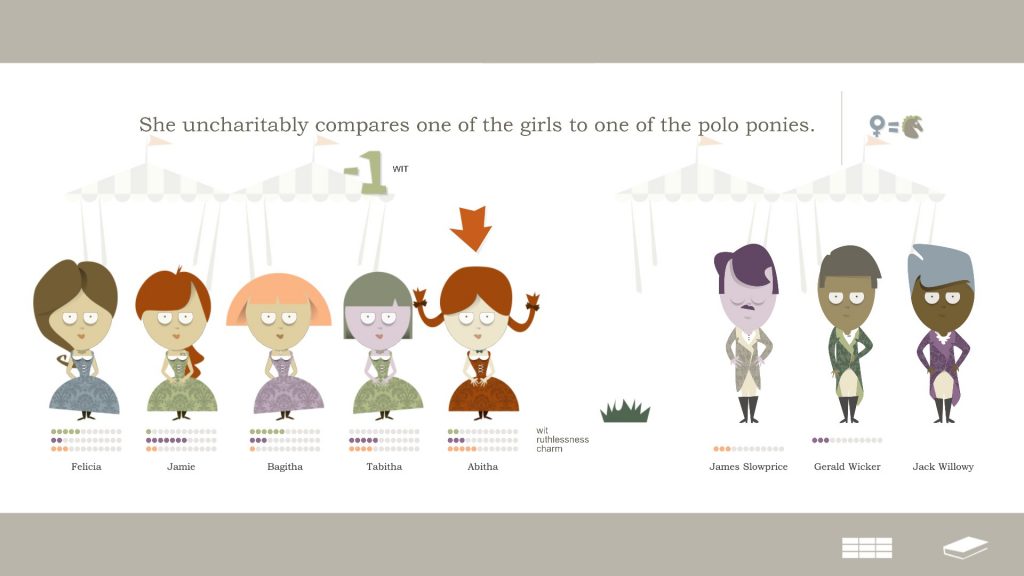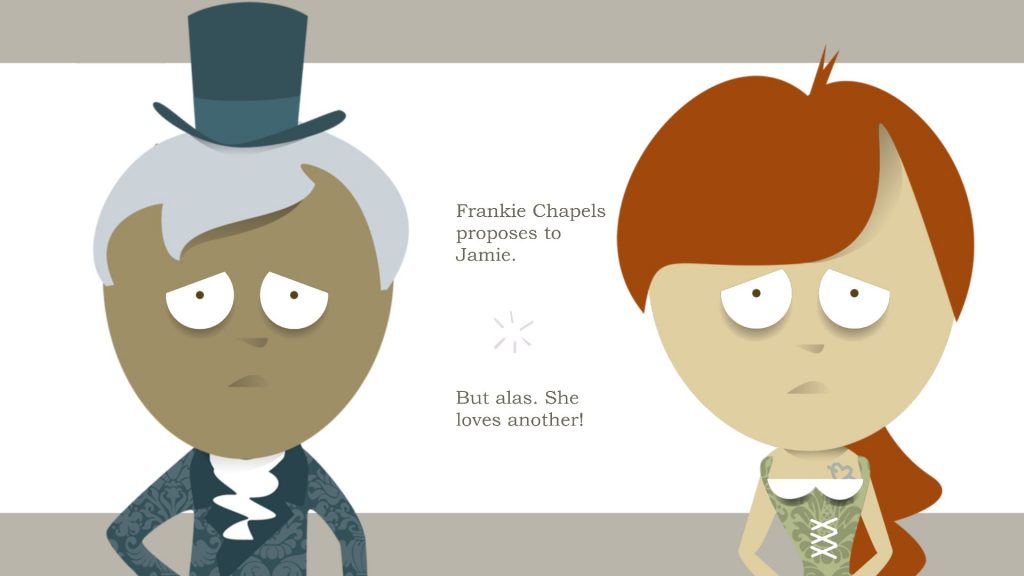Austen Translation (Review)

Source: Cashmoneys
Price: £4.99
Where To Get It: Steam
Austen Translation is an interestingly simple game: Spend four turns (plus some secret events) to try and get your stats (Wit, Ruthlessness, and Charm) close enough that your prospective hubby to be proposes to you, while sabotaging anyone else who might be after your beau (or… Well, just sabotage people so you’re the best match.) That is, beyond some twists and minigames, the whole thing, mechanically. Five players, local play only as far as I can tell, with randomly generated AI players if you don’t feel like filling the roster, and character generation with randomised stats, but you get to customise your lady’s looks.

Everybody got that?
Normally, this would get a “What it says on the tin”, some words about how, once again, Worthing & Moncrieff have nailed a clear, simple aesthetic with a good voice-actress for the round intros (Love the scandalised disgust in her voice when she asks “Did you really just interrupt me?” for clicking through an intro too fast), classical music fitting the theme of the piece…
…But I’ll freely admit, the narrative of the game doesn’t sit terribly well with me. See, Jane Austen was pretty good at critiquing the mores of the time, such as asking that dread question “Why can’t we marry for love, not money or standing?” in Pride and Prejudice… And Austen Translation, by parodying Austen, is almost as if Austen were playing it straight.
It’s pretty clear everyone’s competing, it’s definitely about the fat-stacks of cash the hubbies have, the losers “die in a rat-infested hovel” , and not even the odd winky asides and pleasant classical piano can really distract me from how uncomfortable it made me feel. It’s not played as being romantic, and from the outset, it’s made clear the women are going to be the dominant partners, but I still felt distinctly odd playing a narrative I’d kind of hoped we’d escaped a while back.

Mmmhm.
So, while I can’t personally recommend this, I will say again that it’s easy to pick up, tutorialises well, and has a good aesthetic going for it, with the minor niggle that maybe, just maybe, Wit and Charm could be different colours, or at least one could be made darker than the other so as to better differentiate them? It’s perhaps an interesting party game, albeit one with a narrative that, as noted, didn’t sit well with me.

I’m sorry, but I cannot accept, for my heart belongs to a man with six-degrees of freedom…
The Mad Welshman politely sipped his tea, wallet empty, and thought to himself “Thank goodness I’m a babbage-card critic, and don’t have to get embroiled in such things…”
